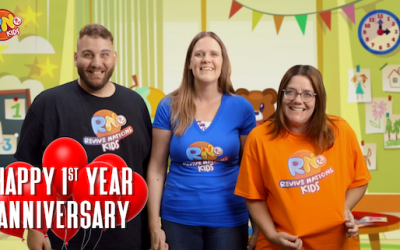By Sarah Evans
Take some ‘time out’ to calm down (see part one)
Talk to Your Child About What Happened:
It is both important and valuable to talk with our children after they have had a ‘tantrum’. This helps us to understand more about how our children think, and also gives us as parents an opportunity to guide and teach them, as God intends for us to do. However, the timing of these ‘teachable moments’ is also important, as if we try to talk to our children too soon, we risk the tantrum-like behavior returning. And so, we need to allow enough time for our children (and for us) to ‘cool off’ before talking together.
Before speaking with your child:
- Ensure that you are both calm and ready to talk. If anger resurfaces quickly, your child is not ready and needs more time.
You can begin by asking your child: “Are you feeling better?” or “Are you ready to talk?”
Signs that your child is ready:
- Your child is calm outwardly.
- Your child is comfortable and non-defensive when you approach them.
- Your child is able to look at you, and shows a readiness to listen.
Once there is calm, our children are able to listen more easily, and can process what is being said: they are now ready to listen, learn and grow.
Offer Clear Guidance:
 ‘Train a child in the way he should go, and when he is old he will not turn from it’ (Proverbs 22:6)
‘Train a child in the way he should go, and when he is old he will not turn from it’ (Proverbs 22:6)
It is always easier to point out what our children are doing wrong! When we do this we succeed in discouraging our children, and they continue to make the same mistakes over and over, without ever learning from them. Instead we need to tell them what they can do differently.
In order for our children to grow up and mature, as God intended, we must guide and teach them how to make better choices, and we must help to provide a supportive environment that fosters growth and helps them to thrive.
It is therefore important to show patience (even when they make the same mistakes over and over), provide them with unconditional love and support (even when they disappoint), and clearly teach them how to make better choices in the future. The only way that we can be a godly influence on our children is by depending on God ourselves, and by asking Him to give us His strength and wisdom: we cannot give something to our children that we do not first have. And so,
‘If any of you lacks wisdom, let him ask of God, who gives generously to all without finding fault, and it will be given to him’. (James 1:5)
Here are a few key things to remember:
Separate your child’s behavior from who they are:
- Never attack their person, e.g. “you are so stupid!”
- Tell your child what they did or said that was inappropriate (in a respectful way).
- “I do not like it when you say mean things to your sister”.
- Tell your child that even though you do not like their behavior, you still love them.
Listen to your child:
- Ask them “what made you say those mean things to your sister?” (Never ask ‘why?’ because children do not know how to answer the ‘why’ question).
- Listen to your child’s side of the story, to understand the reason for their choice of behavior (usually it is not for the reason that you think!).
Remind your child what you expect from them:
- Tell them what you want them to do differently next time (help them to problem solve).
- Remind them of the family rules, and the consequences for not keeping them.
- Be realistic in your expectations. For e.g. is your child mature enough to do what you are asking of them? When you place unrealistic expectations on your children’s shoulders, they will become easily frustrated.
As we take the time to seek God’s strength and wisdom, and as we do our best to teach and guide our children in the things of God, we will begin to realise how little we can achieve on our own, and how much we need Him. In order for us to show love and respect to our children when raising them, we must first understand God’s great love for us. And as we attempt to love our children with this same love, they will begin to grow and mature into God-loving and God-fearing individuals.
Let us show them Christ through our own words and actions, and leave a great legacy of love and faith for them to follow!





